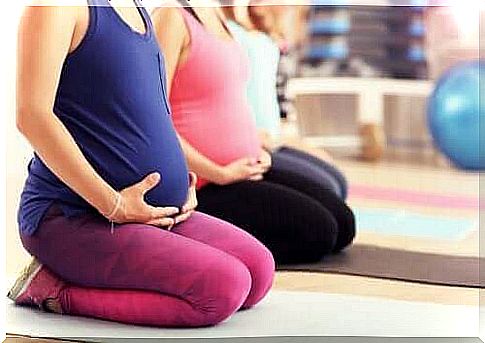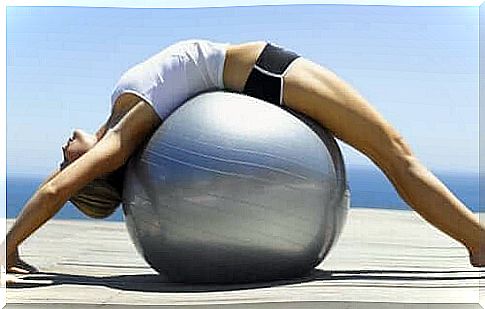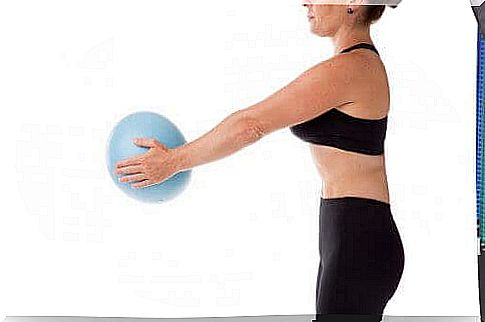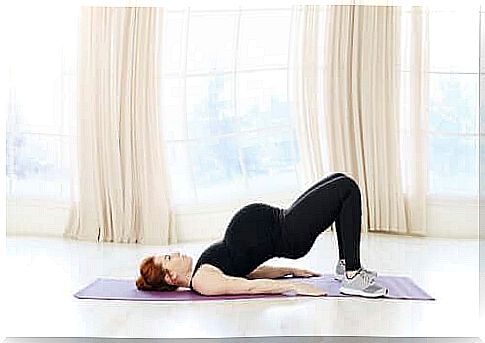Pilates During Pregnancy: Is It A Good Idea?

Exercising during pregnancy is positive for both mother and child. In general, doctors recommend pregnant women to stick to low-intensity exercise, such as swimming, walking and yoga. An alternative that seems attractive to many is Pilates during pregnancy.
But is it a good form of exercise for expectant mothers?
Pilates During Pregnancy: Is It A Good Idea?
Today we want to answer some of the questions you may have about Pilates and whether it is good for your pregnancy.
What is Pilates?

Joseph Hubertus Pilates is the man who invented the training method that bears his name. Pilates was designed to train the body and mind at the same time. The goal is, among other things, to improve concentration, control and breathing.
You can do Pilates on the ground or with exercise equipment. Your body works to increase strength and improve your flexibility and agility. On an emotional level, it helps to increase your self-confidence and allow you to have better contact with yourself.
But, is it possible to do Pilates during pregnancy?
The answer varies depending on each woman’s physical condition.
Every person and every pregnancy is different. Your obstetrician should be able to help you decide if Pilates may be good for you or not.
How to do Pilates during pregnancy?

Suppose you have been to the doctor and have assessed your physical condition. It has been concluded that you can safely do Pilates.
If so, how many times a week should you do it? Can you keep up with the amount of exercise?
Recommendations vary from specialist to specialist. Here are some observations on this from the Journal of Yoga and Physical Therapy (English link):
- You can do Pilates from the moment you find out you are pregnant until the birth. However, you should always do this under medical supervision.
- You can do this between two and three times a week.
- During the first trimester, do not exercise for more than 20 minutes. You can later extend this to up to 45-60 minutes per session when you have progressed further in the pregnancy.
- When performing Pilates, it is important to focus on doing the exercises correctly.
The Benefits of Pilates for Pregnant Women

Pilates during pregnancy can be very beneficial for both you and your baby – not only physically but also emotionally.
Pilates helps to:
- Reduce fear of childbirth : Pilates’ breathing exercises can help women cope better with labor pains.
- Improve future enlargement of the cervix due to strains.
- Strengthen the pelvis.
- Improve flexibility and coordination.
- You learn breathing and self-control that will help a lot during childbirth.
- Prevent varicose veins, hemorrhoids and back problems.
- Improve self-esteem.
- Tighten the body.
- Exercise relaxation.
- Improve sleep and prevent insomnia.
When is Pilates Not Recommended During Pregnancy?

As we have said before, your doctor should tell you whether or not you can do Pilates. In general, this is a form of exercise that is not recommended in certain cases:
- Pregnant women with high blood pressure.
- Premature rupture of membranes.
- When there are delays in intrauterine growth.
- If the mother has preeclampsia.
- If the mother has a high-risk pregnancy.
It is also important to point out that it is smart to go on Pilates classes intended for pregnant women. If you go to regular Pilates classes, avoid exercises where you contract your abdomen (such as sit-ups), upside down and deep stretches.
Pilates during pregnancy can provide many benefits for you and your baby. However, it is important that you check with your doctor before starting a program.
Remember to never make any changes in your habits during pregnancy without consulting your obstetrician. Your and your child’s health comes first!









